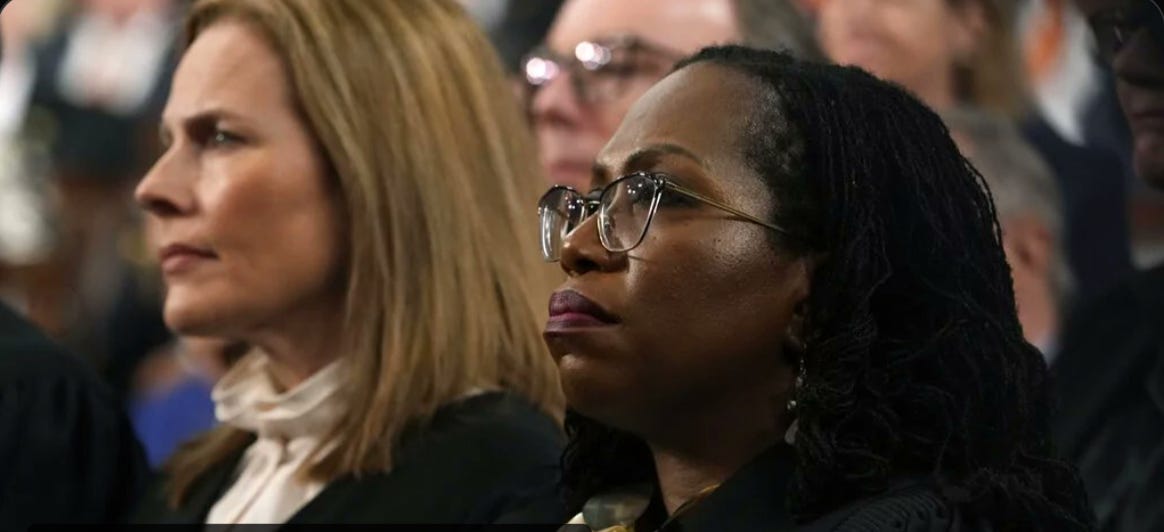The Supreme Court Limits Universal Injunctions - Justice Amy Coney Barrett Takes A Torch To The "Imperial Judiciary" -- And Justice Jackson.
The Lower Courts' Elevation of Themselves as the Overseer of the President and Congress is Laid to Rest by The Six Justice Majority
By a 6-3 vote the Supreme Court held in Casa v. Trump that there is no legal foundation for granting preliminary equitable relief in the form of “universal” restraining orders and injunctions of the type that have been regularly sought and imposed in the lawfare being waged by left-wing interest groups against the Trump Administration’s changes to how the Executive Branch operates.
The majority opinion was written by Justice Barrett, and joined by Chief Justice Roberts, Justices Thomas, Alito, Gorsuch, and Kavanaugh.
The basis of the holding is that because the authority of federal courts only arises out of the constitution or statutes passed by Congress, there must be a basis in one of those two sources for the “equity” power of a court to command a party do do something or not do something while the case is pending but before a judgment is entered. The concept of “equity” is based on “fairness.” What is the fair thing to do about the injuries the plaintiff claims to be suffering if those injuries will continue over the months and years that might pass before the case is concluded? Is it “fair” to order the defendant to stop whatever conduct is at issue if there is a possibility that the defendant might ultimately prevail?
The Court found the source of federal courts’ equity power in a statute passed by Congress shortly after the ratification of the Constitution. It created the framework for what later became the lower federal court system — the Constitution only created the Supreme Court.
The Majority:
Because suits in equity were handled by the High Court of Chancery in England at the time of the adoption of the Constitution, the Supreme Court has long held that equitable powers of federal courts are the same as the equitable powers of English courts after which they were modeled.
If the Judiciary Act gave the lower federal courts the same powers in equity as those possessed by the High Court of Chancery in England, then for universal injunctions to be within the equitable power of federal courts there must be some analogous form of equitable power that existed in the High Court of Chancery.
Keep reading with a 7-day free trial
Subscribe to Shipwreckedcrew's Port-O-Call to keep reading this post and get 7 days of free access to the full post archives.






